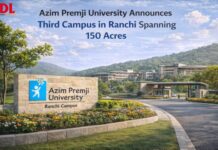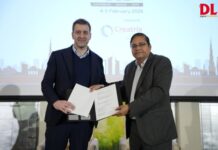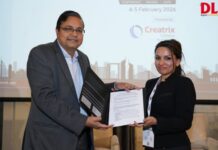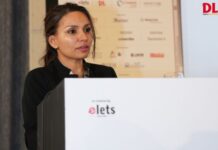
Education stands at a crossroads. On one side is tradition, rooted in discipline, respect for knowledge, and the belief that academic achievement is the key to opportunity. On the other is modernity, with its call for creativity, adaptability, and the ability to thrive in a rapidly changing world. For educators across the globe, the challenge is not to choose between these two but to build a bridge that connects them.
As an Egyptian Canadian educator and principal, I have lived this intersection firsthand. My own journey, from the classrooms of Alexandria, to immigrant life in North America, to leading the first Coptic Egyptian school in Canada, has convinced me that the future of education depends on our ability to balance rigor with innovation, cultural heritage with global outlook, and academic achievement with personal empowerment.
Tradition: Strength and Limitation
In Egyptian culture, education is deeply valued. Parents often carry the conviction that success comes only through medicine, pharmacy, or engineering, the familiar “holy trinity” of professions. These pathways are pursued with intensity, driven by long hours of study, summer tutoring, and a relentless focus on grades.
This emphasis on discipline and perseverance is admirable. It produces resilience, respect for knowledge, and an ethic of hard work. Yet, when pursued in isolation, it risks narrowing possibilities. A student who dreams of becoming an artist, entrepreneur, or researcher may feel silenced by expectations. In communities worldwide, from Cairo to Toronto to Seoul, we see a similar pattern: stability is prized, but passion is too often overlooked.
Modern Demands: Creativity, Adaptability, Leadership
At the same time, the global economy is being reshaped by artificial intelligence, automation, and interconnected challenges such as climate change and inequality. The World Economic Forum consistently highlights skills like critical thinking, collaboration, creativity, and emotional intelligence as essential for the 21st century. These are not skills that can be memorized from a textbook; they must be cultivated through experience, exploration, and reflection.
Here lies the tension. Traditional models of education prepare students for exams. Modern demands require us to prepare them for uncertainty. The bridge between the two is where true educational transformation can occur.
The Whole Child: Beyond Tests and Grades
At PCC, we have sought to embody this bridge by embracing the “whole child” approach. Academic excellence remains a priority, but we view it as one strand of a larger tapestry. Students are encouraged to step outside the comfort zones of their chosen career pathways: to perform in musicals, to compete in sports, to participate in humanitarian trips, to take courses unrelated to their future careers.
The results are remarkable. Students who once doubted their ability discovered confidence on stage. Others returned from trips to Egypt or Bolivia with a global awareness that reshaped their aspirations. Far from harming their academic performance, these experiences enriched it. Graduates have gone on to prestigious medical and engineering programs, but also to law, business, and the arts. Their success lies not in conformity but in the breadth of their formation.
Overcoming Cultural Resistance
Change is rarely easy. Parents initially questioned why musicals or humanitarian trips were necessary. They feared such initiatives would “waste time” or distract from university preparation. Convincing them required patience, dialogue, and results. Over time, they saw that their children were not losing ground academically but gaining immeasurably in confidence, empathy, and leadership.
This tension between tradition and innovation is not unique to Egyptian families in Canada. It plays out in immigrant households in Europe, in competitive education systems in Asia, and in under-resourced schools in Africa. Everywhere, parents want security; everywhere, students crave purpose. Education systems that succeed will be those that respect cultural values while expanding horizons.
Building the Bridge Globally
So how do we, as a global education community, build this bridge? Three shifts are essential:
1. From Memorization to Meaning
Homework and exams should not be abolished, but they must evolve. Tasks should cultivate critical thinking, application, and problem-solving. Students must learn not only to recall knowledge but to use it.
2. From Narrow Pathways to Broad Horizons
Success cannot be defined by a handful of professions. Education systems must celebrate diverse talents, whether in STEM, the arts, social entrepreneurship, or public service. Students should be encouraged to take risks and explore fields outside their comfort zones.
3. From Isolation to Global Citizenship
Humanitarian trips, cross-cultural exchanges, and digital collaboration projects should be integral, not optional. In an interconnected world, the ability to empathize across cultures is as critical as mastering algebra or biology.
A Call to Action
The future will not wait. If we continue to equate education solely with grades and traditional professions, we risk producing graduates well-prepared for yesterday’s world but unprepared for tomorrow’s challenges. As educators, parents, and policymakers, we must expand our vision.
We must empower students to say: “I will be a doctor because I love healing, an engineer because I love building, an artist because I love creating.” Passion and purpose, not pressure and fear, should drive their choices.
Education must light the fire of curiosity, courage, and conviction. It must empower young people not only to succeed but to lead, to be innovators, bridge-builders, and change-makers in a world desperate for conviction and compassion.
Conclusion
As an global educator, I carry the richness of two worlds: the discipline and reverence for learning of my heritage, and the openness and innovation of my adopted home. My life’s work has been to integrate these values and to prepare students not only for careers but for life. But this is not just my story. It is a global imperative. From Cairo to Copenhagen, Toronto to Tokyo, the challenge is the same: to build bridges between tradition and modernity, between knowledge and creativity, between security and vision. Only then will education fulfill its highest purpose: not simply to produce workers, but to empower leaders who can transform societies.
Views expressed by: Phoebe A. Wasfy (BA, BEd, MEd, OCT), Principal of Philopateer Christian College























